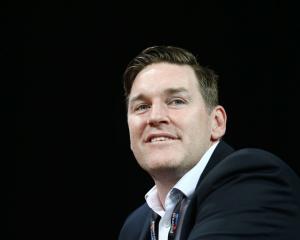
He was at the heart of Otago's success throughout the 1950s, '60s and '70s, but he also helped lay the foundations that allowed the sport to thrive in the present day.
The 82-year-old was made a Basketball Otago life member last week, an honour he was thrilled to receive.
''It was very important. It's been one of the loves of my life. I've enjoyed it,'' Pearson said.
''It's very, very important. I've had two loves of life in sport - cricket and basketball.''
As a player, Pearson won 13 consecutive South Island titles with Otago, while also leading it to national titles in 1968 and 1970.
He began playing as a 17-year-old at the Dunedin YMCA and would take 500 shots per day.
After starting as a centre, he became a guard and played alongside the likes of Judge John MacDonald, Carl Dickel and John Paul.
Defences struggled to stop him and he scored at least 30 points in virtually every game.
It has been said he tallied 30,000 baskets in his career.
He was coached by then UCLA coach John Wooden - regarded as basketball's greatest coach of all time - in a week-long clinic in Dunedin.
He also played against several touring teams, including Oregon State University, and represented the South Island.
It was a career that continued until 1979 when he played his final game for Otago aged 42.
As a coach he also had success and guided King's High School to the final of the national secondary schools championships.
He also coached King's Old Boys, as well as Otago.
Around that he fitted a more than useful cricket career.
From 1961 to 1971, he played 31 first-class matches for Otago, averaging 23.64 with the bat and posting a highest score of 140.
But his influence went beyond playing. In the late 1960s, he helped form the Otago Men's Basketball Association - bringing together the two previously existing entities.
He helped move the playing of men's basketball to Saturdays in 1971.
Prior to that, it had been predominantly played midweek by rugby and football players as a way to keep fit. The move established it as a main winter sport, pushing more players to view it as a serious sporting option.
He was one of a handful of people involved in setting up miniball - children's basketball - in Otago.
On the first day there were nine players. It has since been renamed Kiwi Hoops and has grown to 148 teams.
Just last year he helped attract Steven Adams to Dunedin to host a camp for 400 school-aged players.
Pearson felt there were a handful of key differences in the game nowadays compared to when he played.
''Well, obviously height is the major thing.
''The ability to play with both hands, in our day we used to play right-handed basketball, so the ability to play with the left hand.
''Perhaps the most important thing is its called transition when you change from being on defence to offence - the escalation of developing fast breaks and stopping the opposition side.''
Outside of the sport he was heavily involved with the Bendigo Valley Sport and Charity Foundation for 30 years and remains a company director.











